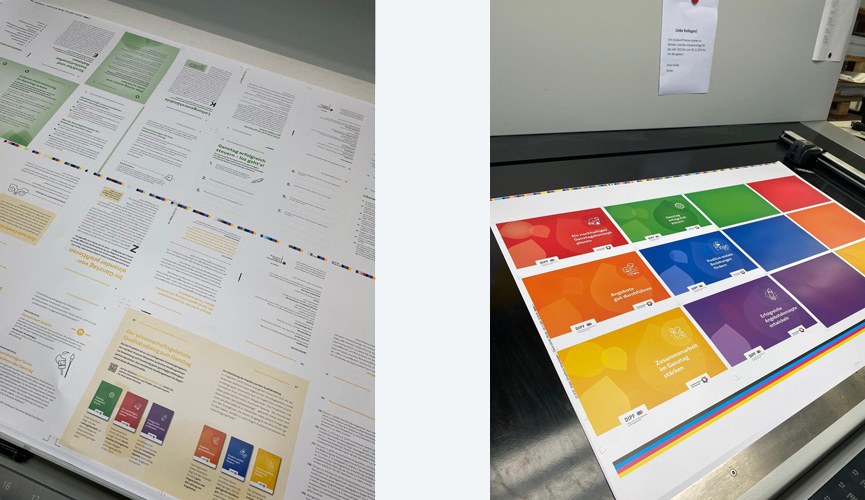Led by Dr. Stephan Kielblock and Prof. Dr. Kai Maaz, the project "Research-based Dialogue regarding the Quality of Extracurricular Activities" was launched in June 2020.
The BMBF-funded project initiated a nationwide exchange process involving educational research, educational practice and educational administration based on studies and experiences with all-day education programmes. The Quality Dialogue uses the diversity of perspectives and regional differences to gather and disseminate research findings, examples of best practice and practical experience in order to create concrete knowledge for the design of good all-day education.
- Project title: Research-based Dialogue regarding the Quality of Extracurricular Activities
- Duration: 2020-2025
- Funding: BMBF and own funds
The project team members Amina Kielblock, Nora Wazinski and Julia Karl intensively prepared the Dialogue Forums. They searched for speakers from the field of research, best practice input and suitable hosting, and developed a concept for the events. In addition, the Dialogue Forums were widely promoted so the number of registrations far exceeded the number of available places for all events. We successfully reached as many different stakeholder groups as possible. Participants came from all over Germany and included representatives from school administration, after-school care centres, all-day schools and parents' associations

What was originally planned as twelve face-to-face events across Germany was, due to the Covid-19 pandemic, transferred to a digital format. Although this meant a loss of face-to-face interaction, we could engage in cross-regional discussions and benefit from different local perspectives. The agency Greenstorming helped us with the digital design and implementation of the events. We recruited education and science journalist Katja Irle to host the twelve digital events. Experts from science and practice shared their experiences and insights in keynote speeches. The five-hour online dialogue forums provided space for discussion among all participants. In the first part, the impulses from science and practice were presented and participants were able to ask questions. In the second part, smaller work groups explored the ideas from different perspectives, followed by a general discussion. The project team then summarised and systematised the information.

The idea of dialogue also influenced the development of the guidelines: While speakers from academia summarised the research findings on each area of action, the participant contributions from the dialogue forums were compiled into lists of practical impulses and the best practice examples were also edited. The resulting drafts were in turn reviewed by critical friends from academia and practice and revised iteratively until the final version was produced. The agency wald&thal supported the writing of the guidelines as well as layout, printing and distribution. Based on this collaboration, six guidelines for a good all-day school were published in late 2021.
- Launch: June 2020
- Dialogue Forums: 2021
- Publication of the guidelines: November 2021
- Dissemination: 2021 to date